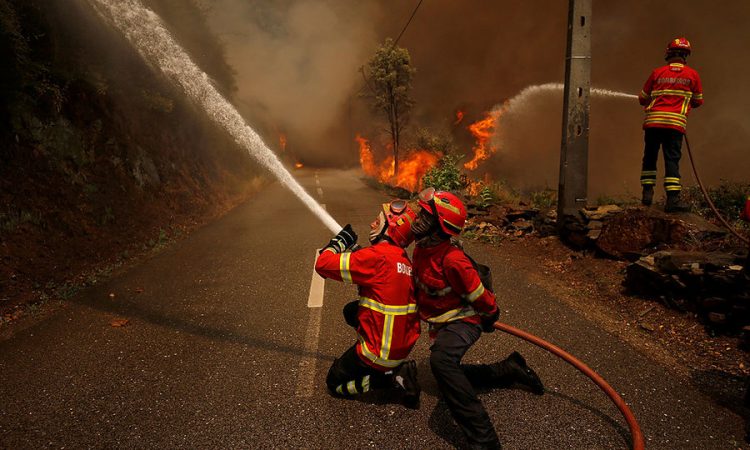NODEIRINHO, PORTUGAL—To my family, summer meant only one thing: fire.
Every year, the fire would destroy another piece of forest, the piece that hadn’t burned the year before. Every year, it would move closer and closer to villages where my relatives grew up, closer and closer to the houses of third cousins I had never seen. On some August evenings, the nearby fires generated so much heat that we covered the chairs with bed sheets and ate in our beachwear.
But this year was worse. Fires swept through the center of Portugal in the past week, killing 64 people. “No one could have predicted these many people would die, but those who know the land know that this territory has been anxiously expecting a tragedy for decades,” says Paulo Castro, an expert in forest fires.
And now, experts say that it is the time to implement the solutions everyone has been debating for decades: dealing with the fragmented ownership of the forest, closer enforcement of laws meant to prevent fires, and restrictions on the growth of eucalyptus trees, which have supplanted more fire-resistant domestic species.
“Everyone knows we have to deal with fires when summer arrives, but never like this,” says Rodrigo Silva, from the village of Nodeirinho, one of the hardest hit. Eleven of its 30 residents were killed.
Many of those killed were trapped in their cars on a highway surrounded by forest. Mr. Silva and his family tried to escape using the same road. But by the time they were ready to jump in the car, his house was filling up with smoke as flames roared through the forests that surrounded it. Along with other neighbors, he and his family took shelter around a tank full of water near the house. They waited in the dark and watched as everything around them burned, taking turns soaking their clothes and faces. In the end, they survived what Prime Minister Antonio Costa called “a level of human tragedy that Portugal has never seen before.”





